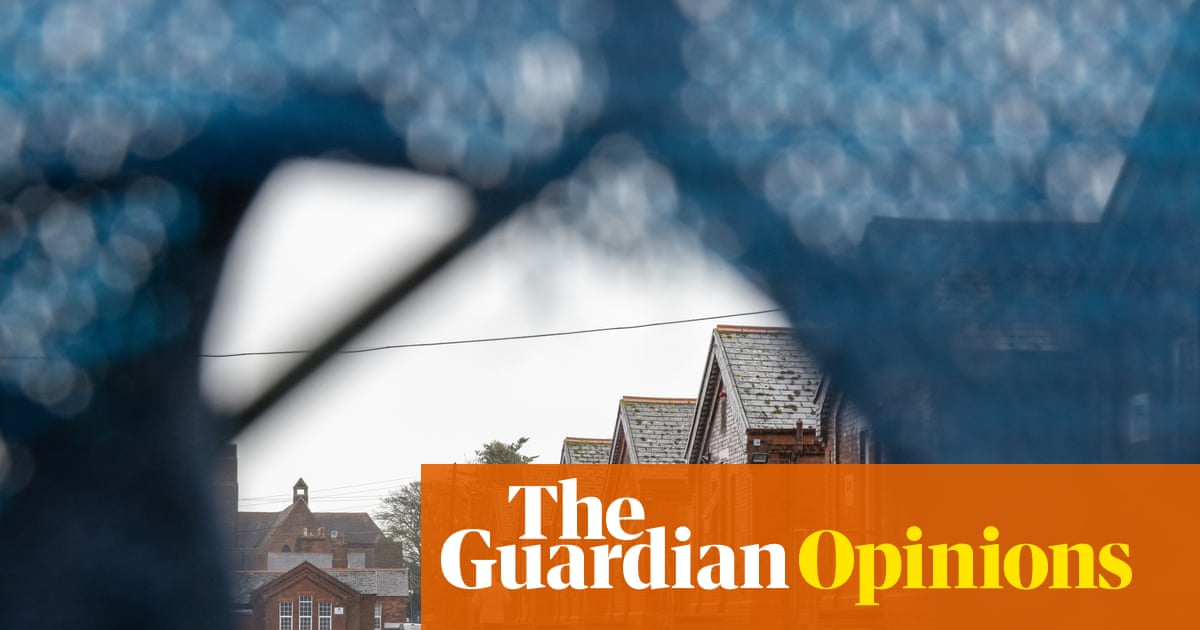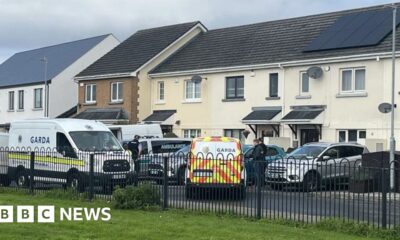Opinion
On a trip to Kent, I saw how politics is being shaped by the west’s growing hostility to outsiders | John Harris
Read more on post.

“Your countries are going to hell,” Donald Trump tells European members of the UN general assembly, as he rages against what he calls “the failed experiment of open borders.” His disciple Nigel Farage looks ahead to mass deportations, and the end of indefinite leave to remain. Keir Starmer, meanwhile, is clearly gripped by panic, now identifying Reform UK as his “enemy” and opposing some of Farage’s most terrifying plans, but still sometimes getting dangerously close to a polite version of the same language. Recent immigration, he wrote in the Telegraph last week, was caused by “a hyper-liberal free-market viewpoint.” It has been “too easy” for people to enter the country, and remain here illegally. Above all, he and his colleagues must use “every possible measure to deter migrants from entering British waters”.
Along with the digital ID the government seems set to call the “Brit card”, this is where we are: alarmingly close to the imaginings of all those dystopian films and TV shows – Children of Men, or the TV series Years and Years – but seemingly yet to fully comprehend it. And clearly, this is not just a matter of rhetoric and political noise. In the real world, you can see where we are heading, with sights that are deeply troubling, but that quickly settle into ordinariness.
Ten days ago, I was recording an episode of the Guardian’s Politics Weekly podcast in Kent, where I came across the most strange combination of scenes imaginable, like some scaled-down English version of the old east and west of Berlin. We were in the coastal town of Folkestone. On one side of a huge expanse of land was a symbol of what politicians call aspiration: a pristine new-build housing development, where a four-bedroom family home goes for about £350,000. But its grid of streets suddenly stopped at a crude wooden fence. I had to get close to see what lay beyond: serried lines of long, low brick buildings, surrounded by a fence whose entire length was covered in frayed blue fabric, seemingly put there so no one can see either in or out.
This is Napier barracks: a Ministry of Defence site still being used to house people seeking asylum. In 2020, the Home Office began using it as a “contingency” accommodation for single men. A year later, the high court said the facilities there did not meet “minimum standards”. In March of this year, there were reports that it would soon shut, before news that the so-called small boats influx meant it would have to remain open. For now, it stands as the embodiment of a belief shared across politics: that in the face of myths about people waiting for decisions from the Home Office living in pampered luxury, their lives must be made as pinched and deprived as possible.
More than anywhere else I have been, Kent is full of symbols of how politics and policy are being reshaped by the west’s growing hostility to outsiders. Dover is more spruced up than the last time I visited, but still feels neglected. Here, you can join in the grim local sport of watching from the cliffs for illicit new arrivals. During an hour of vox-popping, it was not hard to find people who expressed at least some sympathy for people who come here across the Channel. “My first thought is whether they’re safe,” said one woman, who had seen lifeboats rescuing people at least twice. “There’s women and children … what they’re fleeing must be horrendous.” But it was equally easy to fall into conversations full of unabashed hostility. “I’ve no sympathy at all for ‘em,” one man told me. “They come to the UK ‘cause it’s an easy ticket, and they’re guaranteed money.”
In May, Reform UK won 57 of the 81 seats on Kent county council. Its new leader is a former BBC journalist called Linden Kemkaran, who defected to Farage’s party from the Conservatives. She agreed to talk to us at her office in the county town of Maidstone, where the traditional fixtures and ornaments have been joined by signs of regime change. The local aspects of her job are focused on what she calls “efficiency savings”, but she has a habit of eagerly talking about policy areas way beyond her brief: part of her role, she says, is to generate noise and be a “nuisance”. For what it’s worth, she and her colleagues recently “undeclared” the climate emergency. And if she had complete control of asylum policy in Kent, she told me, “we’d stop the boats. People’s feet would not touch English soil.”
I glanced at a small pile of Make Britain Great Again caps on a table near her desk, while she rhapsodised about her party’s mission. “We’re trying to undo the damage of 25 or 30 years of this ridiculous globalist progressive mindset … people will start to see that finally, somebody is in charge who has the balls to say uncomfortable things and make unpopular decisions, because they actually have conviction in their own beliefs.”
That kind of talk worried me, I told her. Like a lot of people, I fear it’ll make society more divided and overheated. “I would say we were in that place already,” she said.
Perhaps we are. In Faversham, Kent’s oldest market town, there were recently far-right protests outside a small facility used to house unaccompanied asylum-seeking children. Writing in the Guardian, one witness described people “chanting ‘Sieg Heil’, hanging St George’s flags from lamp-posts, and crudely daubing roundabouts and zebra crossings with red crosses.”
In other parts of the county, there is something you can almost feel as a physical sensation. It is stifling and prickly: a sort of social humidity, keenly felt by people who have come here from abroad. One woman I met had fled from Eritrea to war-torn Sudan, and then made it into the UK by hiding in a lorry when she was just 17. Having been given asylum, she is now an NHS nurse, and she feels a profound sense of alarm about what she hears people say about immigrants. “I do feel fear,” she told me. “Those people talk about me without my permission … I had to learn the language, and integrate with the country. I’m not against the flag. I’m not against anyone who feels proud to be British … But do you know my journey? Do you know my story?”
after newsletter promotion
She and other people I met well know what they are faced with: provocateurs, troublemakers and straight-up thugs whose loathing makes no distinction between those who have been granted asylum or are seeking it, nor first-generation immigrants and people who were born and raised here. Whether they like it or not, our politicians have given permission for old hatreds and prejudices to be given a 21st-century refit: if you are not white, or speak with a different accent or in a foreign language, you may find yourself at the cruellest intersection of politics, the online world and everyday life, being filmed for a TikTok video, shouted at in the street, or attacked. But precious few frontline politicians talk about any of that.
Is it naive to wonder how little space our discourse now leaves for common humanity, charity and generosity? For the last week, I have thought a lot about Folkestone, the barracks, and that border between middle-English comfort and threadbare privation, and a question that ought to haunt us all. Do the people in the new-build homes ever empathise with the unfortunate souls just over the fence? Or are they unpeople, only there to be threatened, kicked around and blamed for social ills that they have nothing to do with?
-
John Harris is a Guardian columnist











